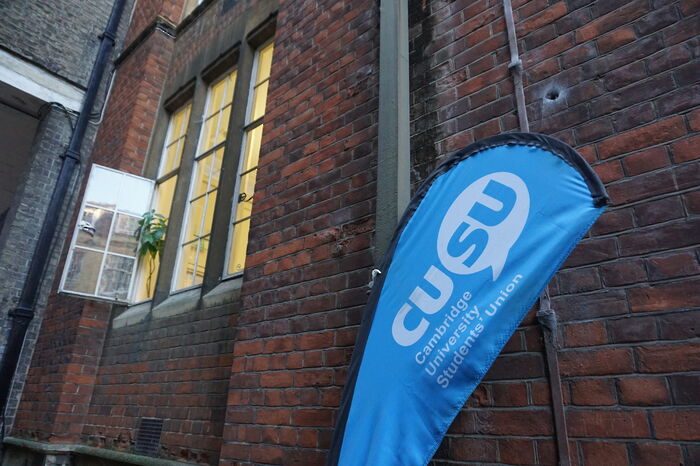Don’t let Cambridge fool you: there’s more than one way to succeed
In their second column on disability and welfare, Micha Frazer-Carroll and Florence Oulds argue that Cambridge’s rigid definitions of success do students, and the university, a disfavour

The University’s Equality & Diversity Strategy opens with a quote from former Vice-Chancellor Professor Sir Leszek Borysiewicz: “The University’s diversity plays a key role in sustaining its academic excellence.”
While Borysiewicz was invested in equality as Vice-Chancellor, his statement also points towards more problematic elements of the university’s approach to diversity, in that it must be advantageous to be permitted. In other words, that minority groups have to to be ‘useful’ to be included at all.
“How can we succeed in an environment in which the generally-accepted, blanket vision of ‘success’ wasn’t created for us?”
Cambridge views itself as epitomising success – being the home of the ‘brightest and the best’, all the way from its faculty heads, to its researchers, down to its annual fresher intake. This summer we saw a viral celebration of the first admissions cycle in which the university took more black men than Etonians. But this shouldn’t distract from the fact that when marginalised students arrive, they’re often confronted with the stark realisation that this isn’t a space originally built with them in mind. How can we succeed in an environment in which the generally-accepted, blanket vision of ‘success’ wasn’t created for us?
This plays out differently for different marginalised people. Take disabled students, who are usually given ‘reasonable adjustments’ – procedures like extra time, extended library loans, breaks, or a separate room to sit exams in. As students, we both often had our reasonable adjustments ignored, disregarded, or misunderstood. One example was being allowed to submit plans instead of essays, but being told the adjustment could be made “just this once”, as if disability conforms to a termly schedule.
While reasonable adjustments are – as is in their name – reasonable changes to teaching and learning, we’re still prone to viewing them as ‘allowances’, mechanisms helping students up to a bar for success that they couldn’t reach alone. Disabled students are pitied and pushed to the standards of success of their non-disabled peers, rather than being allowed to be assessed alternatively. Even then, the idea of ‘alternative’ assessment tells us something about the institution’s supposed gold standard of education, its commitment to reputation above practice, and how this hinders its own capability for real progress or excellence. What’s so special about the three-hour exam format anyway?
Spaces within the University that don’t conform to written examination format still see similar problems. Postgraduate students with few contact hours often find that, unlike at undergraduate level, their own voices are quashed in favour of a ‘Cambridge style’. In a conversation with Ellie Chan, vice-president of the Graduate Union, she explained that there is a more “rigid idea” of what academic success looks like for grads, and an increased pressure to fit the stereotype of the chino-clad, upper class Cambridge student. This persists as an issue within student culture rather than the university, but still is a problem that the university as a whole should be addressing. She noted that even for postgrads, the same insecurity prevails: no matter how intelligent we are, we have to be the ‘right kind’ of intelligent.
Specific academic interventions, like reasonable adjustments and wider cultural problems, like conceptions of success, ultimately unload the problem on the person who doesn’t fit rather than the system itself. Looking at the system, we should work to reimagine what success can be, or going further, come to terms with the fact that multiple images of success can happily exist alongside each other.
Following Murray Edwards College’s recent decision to alter their admission policy to more easily admit transgender women, their President Dame Barbara Stocking responded to criticism with a letter in the Financial Times: “I also believe that transgender women can be our allies in this mission. They are able to spot the inequalities women face very quickly, because they have experienced something different as a man.” Besides being misguided and borderline transmisogynistic, Stocking’s quote again reveals a core problem with the university’s diversity ethos. Trans women, as a marginalised group, cannot just be admitted on behalf of their being intelligent women, their inclusion must somehow benefit the Cambridge elite. Why?
 Features / Should I stay or should I go? Cambridge students and alumni reflect on how their memories stay with them15 December 2025
Features / Should I stay or should I go? Cambridge students and alumni reflect on how their memories stay with them15 December 2025 News / Cambridge study finds students learn better with notes than AI13 December 2025
News / Cambridge study finds students learn better with notes than AI13 December 2025 Comment / The magic of an eight-week term15 December 2025
Comment / The magic of an eight-week term15 December 2025 News / News In Brief: Michaelmas marriages, monogamous mammals, and messaging manipulation15 December 2025
News / News In Brief: Michaelmas marriages, monogamous mammals, and messaging manipulation15 December 2025 News / Uni Scout and Guide Club affirms trans inclusion 12 December 2025
News / Uni Scout and Guide Club affirms trans inclusion 12 December 2025










